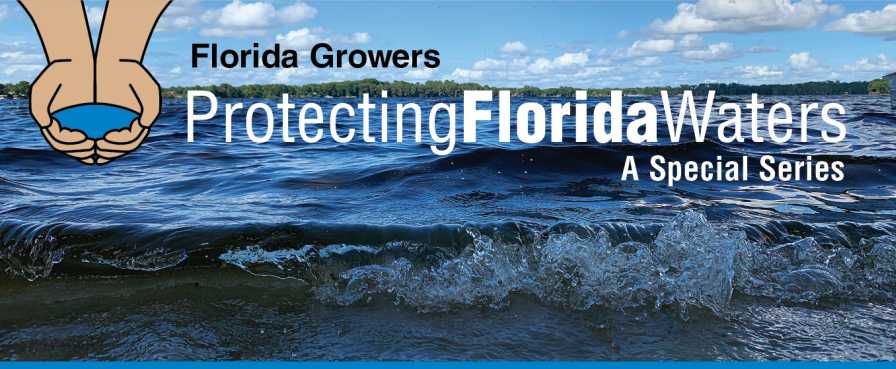Key STEPS Produce Growers Can Take Toward Cleaner Water on the Farm
Two scientists from the University of Florida (UF) have joined a national research effort that seeks ways to reduce the impact of phosphorus on the environment while sustaining crop production and yields. The program, Science and Technologies for Phosphorus Sustainability (STEPS), has several goals, including facilitating a 25% reduction in human dependence on mined phosphates and a 25% reduction in phosphorus losses to soils and water resources within 25 years.
Sandra Guzmán, an Agricultural Engineer with UF/IFAS, and Jehangir Bhadha, a Soil and Water Scientist with UF/IFAS, have joined the STEPS effort. UF is among eight other universities participating in the research program. Led by North Carolina State University (NCSU), STEPS will be headquartered on NCSU’s Centennial Campus and is funded by an initial five-year, $25 million grant that is renewable for an additional five years.
Triple-Bottom-Line
Florida was selected because of its unique ecosystems, especially those in South Florida. The STEPS program applies a Triple-Bottom-Line criteria to some of its research initiatives. Florida fits that category because specific geographical sites represent urban, agricultural, and aquatic systems. The areas of focus in Florida include Lake Okeechobee, the Everglades Agricultural Area (EAA), and Everglades National Park. Those ecosystems have directly been impacted by phosphorus and the source of much debate among various stakeholders in the state.
“My participation involves the implementation of technologies and materials to capture phosphorus from water systems related to agriculture and to contribute to stakeholder engagement and translational science,” Guzmán says. “We are one of the Triple-Bottom-Line aquatic ecosystem testing sites. These sites will provide baseline insights to develop and implement phosphorus-capture technologies in surface waters and to facilitate interactions with stakeholders.”
The STEPS Center has more than 40 investigators across the U.S., all of which will be conducting concurrent research on phosphorus sustainability.
Bhadha works out of the Everglades Research and Education Center in the heart of the sensitive EAA.
“My research and Extension program focuses on promoting sustainable agriculture within the EAA and beyond,” he says. “This focus lines up very well with the overall goals of STEPS. My program will be directly involved in projects related to phosphorus use efficiency in crops; controlling and utilization of legacy phosphorus in soils and sediments; and baseline data and assessment tools for simulating phosphorus flows. It is important that I leverage findings from STEPS to stakeholders within the EAA. Knowledge transfer is an integral part of the STEPS Center.”
Essential Element
With so much negative press going toward phosphorus’ impact on water quality in Florida, Bhadha points out it is important to remember that phosphorus is an essential element of life on earth.
“Phosphorus is vital for human existence, yet not a renewable resource,” he says. “So it is imperative for us to use it efficiently. The world population is increasing, and farmlands are shrinking. We need to get innovative in finding ways to feed more mouths with limited resources. Phosphorus sustainability is not a trivial challenge. As a matter of fact, it is a very complex issue that needs immediate attention and cooperation from numerous parties. Not just the scientists, regulators, and growers, but all of humanity need to play their part in addressing the challenges of phosphorus sustainability.”
The series of “Protecting Florida Waters” stories investigate how production practices, equipment, and technology are helping growers in the Sunshine State do more to protect water.










